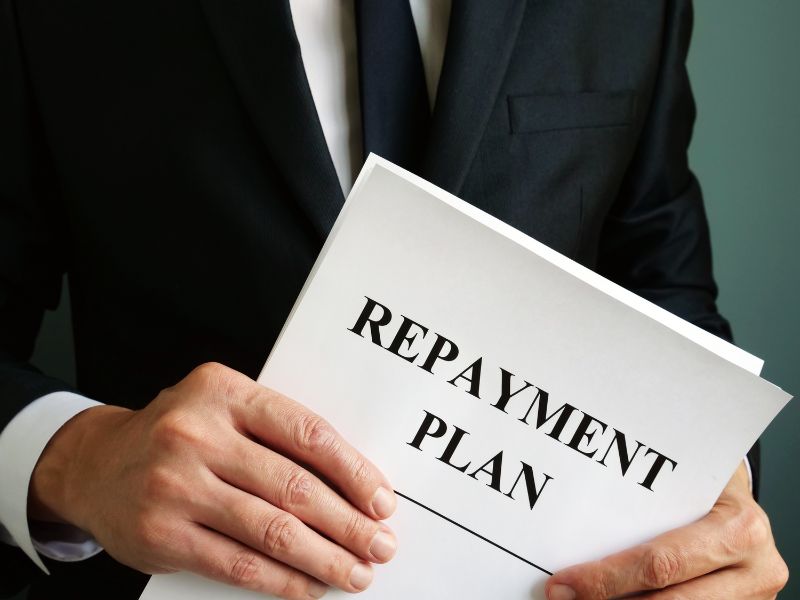Understanding Hidden and Non-Hidden Mortgage Fees
 When navigating the mortgage process, understanding the various fees involved is crucial for accurate financial planning. Mortgages come with a range of fees, some of which are clearly outlined and others that may not be immediately obvious. We will explore both hidden and non-hidden mortgage fees, providing insights into how they impact the total cost of your loan.
When navigating the mortgage process, understanding the various fees involved is crucial for accurate financial planning. Mortgages come with a range of fees, some of which are clearly outlined and others that may not be immediately obvious. We will explore both hidden and non-hidden mortgage fees, providing insights into how they impact the total cost of your loan.
Non-Hidden Mortgage Fees
Non-hidden fees are those that are clearly outlined in your loan agreement and are typically part of the initial cost of securing a mortgage. These fees are transparent and essential for completing the mortgage process.
- Origination Fee:
- Description: This fee is charged by the lender for processing your loan application. It usually ranges from 0.5% to 1% of the loan amount.
- Impact: It is a one-time fee paid at closing and is a direct cost of securing the mortgage.
- Appraisal Fee:
- Description: An appraisal fee is paid to a professional appraiser to determine the value of the property you are purchasing.
- Impact: This fee, typically ranging from $300 to $600, is necessary to ensure the property’s value supports the loan amount.
- Title Insurance:
- Description: Title insurance protects the lender and/or borrower against any legal issues that may arise with the property’s title.
- Impact: Costs vary by location but generally range from $400 to $1,000. It is paid at closing and is crucial for protecting ownership rights.
- Credit Report Fee:
- Description: This fee covers the cost of obtaining your credit report to assess your creditworthiness.
- Impact: Typically ranging from $30 to $50, this fee is usually paid upfront as part of the loan application process.
- Escrow Fees:
- Description: Escrow fees are charged for managing the escrow account, which holds funds for property taxes and insurance.
- Impact: These fees can range from $300 to $700 and are paid at closing. They ensure that funds are available for future expenses related to the property.
Hidden Mortgage Fees
Hidden fees are those that may not be immediately apparent or clearly disclosed in the initial loan agreement. These fees can significantly affect the overall cost of the mortgage and are often revealed only after closer scrutiny.
- Private Mortgage Insurance (PMI):
- Description: PMI is required if your down payment is less than 20% of the home’s purchase price. It protects the lender in case of default.
- Impact: PMI can add $100 to $200 per month to your mortgage payment. It’s often not highlighted upfront but can significantly increase your overall mortgage cost.
- Prepayment Penalties:
- Description: Some loans include penalties if you pay off your mortgage early, whether through refinancing or additional payments.
- Impact: These penalties can be a percentage of the remaining balance or a set number of months’ worth of interest. They are not always clearly disclosed and can affect your decision to pay off your loan early.
- Underwriting Fees:
- Description: Underwriting fees cover the cost of evaluating and approving your loan application. They are sometimes rolled into the origination fee but can be a separate charge.
- Impact: These fees typically range from $300 to $600 and may not be clearly separated in the initial fee disclosures.
- Document Preparation Fees:
- Description: Fees for preparing the legal documents required for closing the loan. These can sometimes be hidden in the overall closing costs.
- Impact: Typically ranging from $100 to $300, these fees ensure that all legal paperwork is correctly handled.
- Loan Servicing Fees:
- Description: Some lenders charge fees for servicing the loan after it is issued, which may include managing the account or handling payments.
- Impact: These fees can vary but are often included in the fine print of your loan agreement.
Understanding both hidden and non-hidden mortgage fees is essential for accurate financial planning and avoiding unexpected costs. By being aware of these fees, you can make more informed decisions and better manage your mortgage expenses.
#MortgageFees #HiddenFees #LoanCosts #MortgageOriginationFee
 Mortgage prepayment penalties are fees charged by lenders when borrowers pay off their mortgages before the agreed-upon term. These penalties are designed to compensate lenders for potential lost interest income and can significantly impact borrowers who want to pay off their mortgages early. Here’s what borrowers should watch out for and how to avoid or mitigate prepayment penalties:
Mortgage prepayment penalties are fees charged by lenders when borrowers pay off their mortgages before the agreed-upon term. These penalties are designed to compensate lenders for potential lost interest income and can significantly impact borrowers who want to pay off their mortgages early. Here’s what borrowers should watch out for and how to avoid or mitigate prepayment penalties: You have worked hard for your money, and you probably want to save as much of it as you possibly can. That means you need to find the best possible mortgage deal you can. What are a few steps you should take if you want to get the best loan terms possible?
You have worked hard for your money, and you probably want to save as much of it as you possibly can. That means you need to find the best possible mortgage deal you can. What are a few steps you should take if you want to get the best loan terms possible?